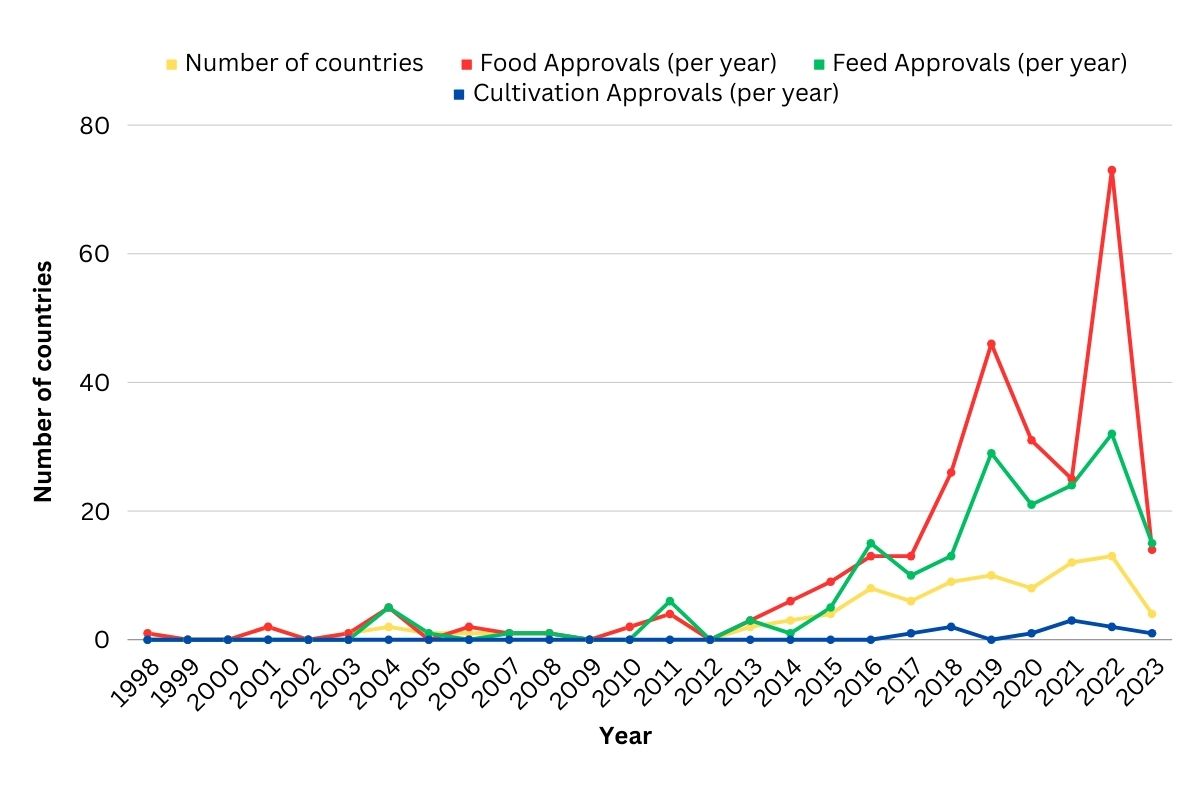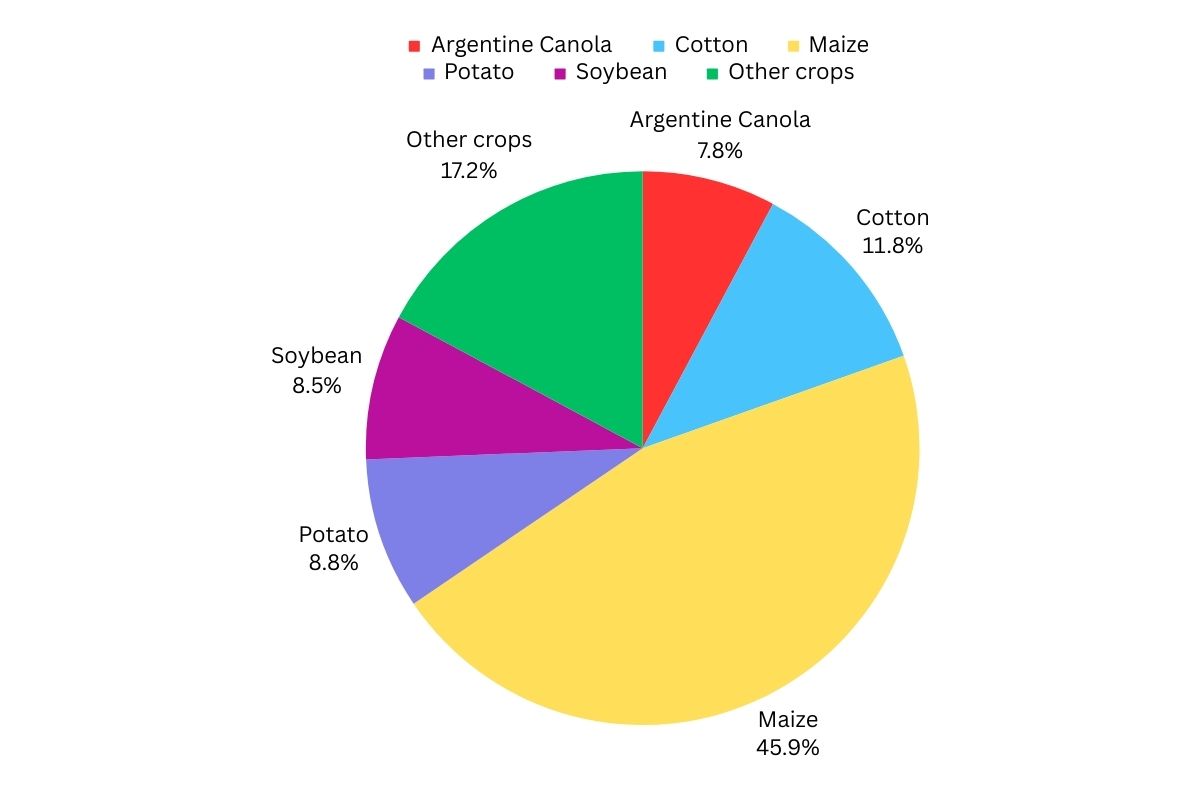Highlights from the GM Approval Database
| |

ISAAA has been leveraging one of its primary resource materials–the GM Approval Database (GMAD). This simple, easy-to-use, and user-friendly database presents documented biotech/GM crop approvals worldwide based on credible sources such as government regulatory websites, biosafety clearing houses, and peer-reviewed scholarly articles.
According to the survey conducted by ISAAA in 2022, most of the regular users and contributors of the GMAD are scientists/academics (61%). Other users include administrators, regulators, and media practitioners. 99% of the users find the content in the database useful. Most of them use GMAD for getting approval updates, instruction, risk assessment/regulatory decisions, and planning control measures.
Indeed, GMAD is one of the top online resources for such approvals worldwide. According to a GMAD user from France, “the database provides the big picture of GM crop approvals in one place.” It is a one-stop shop that compiles biotech events with a brief description, trait, developer, year of approval for cultivation, food and feed approvals, and a summary of regulatory approvals. GMAD also provides a link for users who wish to browse and check the original source of information for verification.
GMAD was developed by Dr. Rhodora Romero-Aldemita, Executive Director of ISAAA, Dr. Randy A. Hautea, former Global Coordinator of ISAAA and Director of ISAAA SEAsiaCenter, and Mr. Eric John Azucena, Senior Information Management Specialist of ISAAA. It was completed and refined by Dr. Renando Solis and Mr. Azucena in 2010. As another year unfolds, this article unravels some highlights of the GMAD updates.

GMAD has a total of 577 approvals, with maize being the crop with the most approvals and the United States being the country with the most approvals. As shown in the figure above, food approvals are at their peak in 2022, having Thailand as the country with the most number of approvals.

The top five GM crops with the most approvals are maize, cotton, potato, soybean, and argentine canola. Among the GM crops approved, maize has the highest number of events, followed by cotton and soybean. According to the U.S. Food and Drug Administration, most genetically modified (GM) corn is created to resist insect pests or tolerate herbicides to reduce the need for insecticides. GM maize has a total of 265 events documented in GMAD.
Meanwhile, GM cotton is usually created to resist bollworms, a persistent threat to cotton plants. Scientists and researchers have developed GM cotton with both herbicide tolerance and insect resistance traits to fight against one of the major pests of cotton plants. These biotech varieties help farmers with pest and weed management, which could reduce adverse environmental impacts caused by conventional methods of controlling pests and weeds. GM cotton has a total of 68 events documented in GMAD.
GM potato has been developed for various purposes. Some of these include resistance to bruising, resistance to late blight, and reduced sugar levels. Similar to other GM crops, GM potato is produced to help reduce the use of chemical fungicides in potato farming. GM potato has a total of 51 events documented in GMAD.
These numbers indicate that the agriculture sector clamors for solutions targeting insect infestation and reducing herbicide use. With the goal of lowering production costs and increasing yield, researchers worldwide have exerted efforts to produce biotech crop varieties to address such challenges.
ISAAA GMAD envisions an easily comprehensible platform for a wide range of users. Biotech crop information may be overwhelming and technical for some. With hundreds of information worldwide, ISAAA hopes GMAD will bridge the information gap by providing a simplified and summarized version of biotech crop approvals worldwide.
Visit the ISAAA GM Approval Database to use its features and functions.
Read the articles below for further reading:
- ISAAA Subscribers Give High Ratings to E-newsletter, GM Approval Database, and Adoption Report
- ISAAA GM Approval Database Keeps Track of Global Regulatory Approvals
| Newer Post | Archive | Older Post |
Science Speaks is ISAAA Inc.'s official blog. Weekly blog articles, authored by ISAAA writers, partners, and invited contributors, aim to help share, disseminate, and promote scientific knowledge and its vital role in achieving global agricultural sustainability and development. Your support to Science Speaks will help us achieve this goal. You can help us by donating as little as $10.

